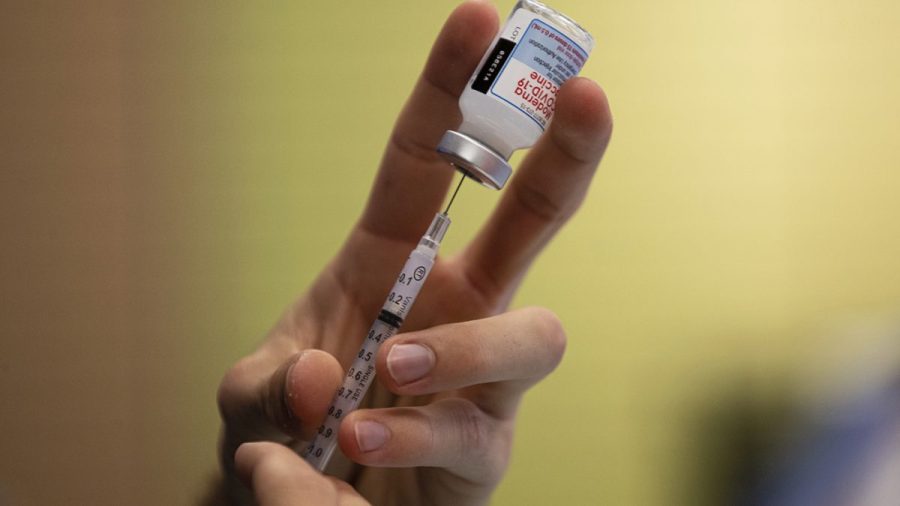Major funding cuts to mRNA research raise pandemic concerns

Impact of Funding Cuts on mRNA Vaccine Research
Health Secretary Robert F. Kennedy Jr.’s decision to cancel hundreds of millions of dollars in funding for mRNA vaccine research has raised serious concerns among public health experts. They argue that this move could leave the United States vulnerable to future pandemics and other public health crises.
Jerome Adams, former surgeon general under President Trump, expressed his concerns on social media, stating that the decision could cost lives. He emphasized the importance of mRNA technology, which has been instrumental in developing vaccines quickly during the pandemic. The first mRNA vaccines from Pfizer and Moderna were developed in record time, thanks to significant funding from the previous administration’s Operation Warp Speed initiative.
These vaccines proved to be safe and effective, playing a crucial role in ending the pandemic. Experts believe that mRNA technology has the potential to revolutionize treatments for various pathogens, including bird flu, due to its adaptability.
On Tuesday, Kennedy canceled $500 million in contracts related to mRNA vaccine research funded by the Biomedical Advanced Research and Development Authority (BARDA). Instead, he stated the agency will focus on platforms with stronger safety records. However, public health experts point out that extensive reviews of mRNA vaccines administered globally have shown very few adverse events.
Jeff Coller, a professor at Johns Hopkins University, suggested that the decision might be politically motivated. He argued that this move could hinder U.S. biomedical research and discourage investment in mRNA technology, as it sends a clear message that such efforts may not receive federal support.
Jennifer Nuzzo, an epidemiology professor at Brown University, warned that the cancellation poses a threat to national security. She explained that the U.S. must remain committed to preparedness to deter biological warfare. By removing these initiatives, the country may signal a lack of interest in defending itself against future threats.
In the long term, winding down research on mRNA vaccine platforms could stifle medical innovation in the U.S., including new treatments for diseases like cancer. Nuzzo noted that cancers have genetic signatures, and preliminary studies suggest that mRNA technology could be a promising approach for treatment.
While none of the canceled contracts directly involve cancer research, Michael Osterholm, director of the Center for Infectious Disease Research and Policy, warned that the move could create a chilling effect on researchers. He believes that those willing to invest in mRNA technology may pull back or exit the field entirely.
Kennedy is known for his skepticism towards vaccines, particularly mRNA vaccines. In 2021, he falsely claimed that the mRNA COVID-19 vaccine was the “deadliest vaccine ever made.” He has also faced criticism from anti-vaccine activists for not doing enough to prevent mRNA vaccines from being approved.
In a recent video, Kennedy falsely claimed that mRNA shots do not protect against respiratory viruses and become ineffective if a virus mutates. This statement has further fueled concerns among public health experts.
Following the announcement, many experts urged Congress to restore funding for mRNA vaccine research, calling the move an “assault” on federal vaccine policy. Robert Steinbrook, director of the Public Citizen Health Research Group, criticized the decision, emphasizing the importance of the mRNA platform in rapid vaccine development and deployment during the pandemic.
The full extent of Kennedy’s actions remains unclear. A spokesperson for Moderna mentioned they were unaware of any new award cancellations since their contract for an H5N1 bird flu vaccine was canceled in May. Gritstone Bio, another company affected by the cuts, ceased operations earlier this year after filing for bankruptcy in 2024.
Tiba Bio, another company on the list, expressed surprise over the termination of their BARDA contract, noting that their work involves RNA interference, a method approved by the FDA for treating certain diseases in 2018.
As the debate continues, the implications of these funding cuts on future public health preparedness and medical innovation remain a pressing concern.
Post a Comment for "Major funding cuts to mRNA research raise pandemic concerns"
Post a Comment